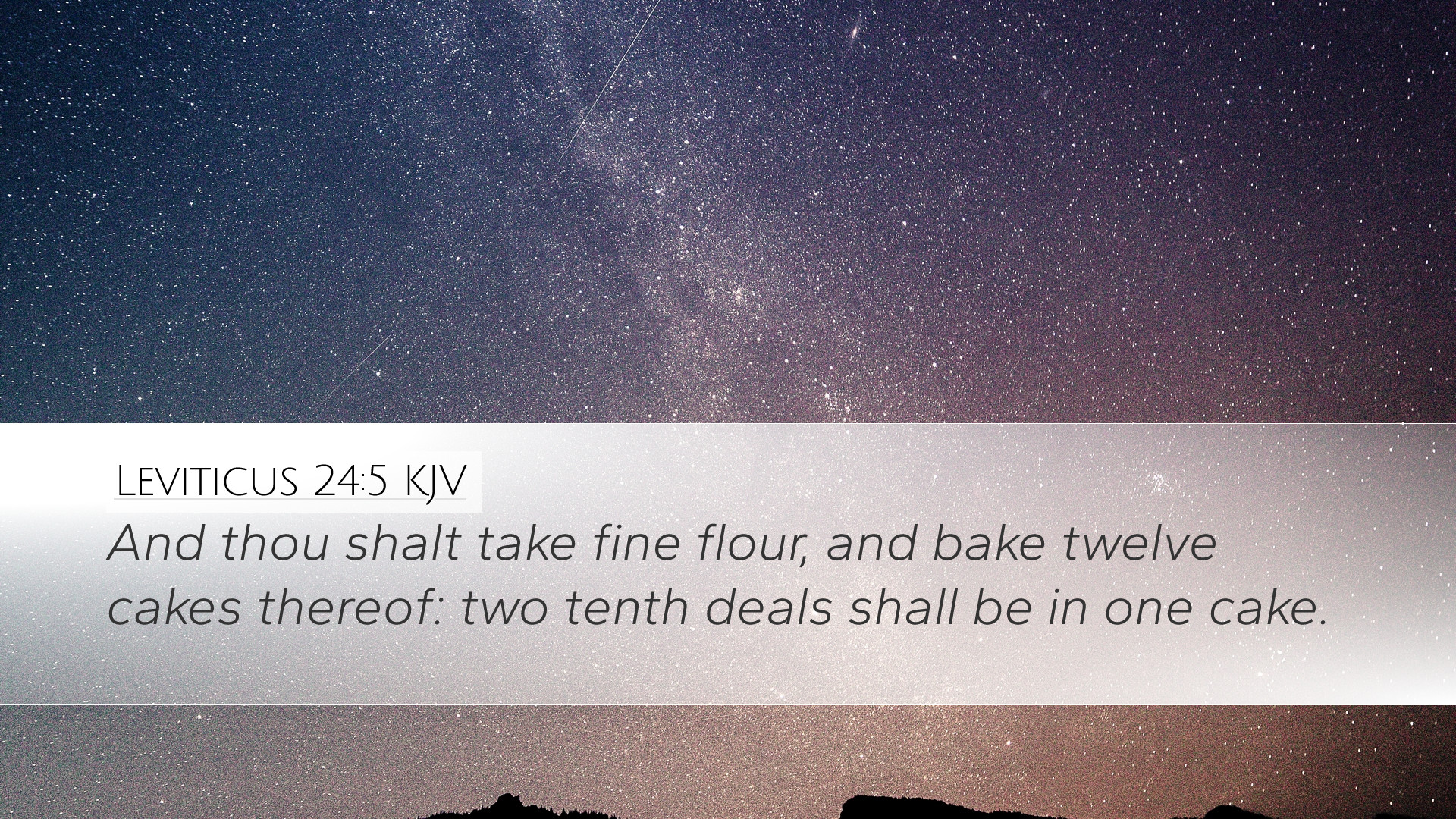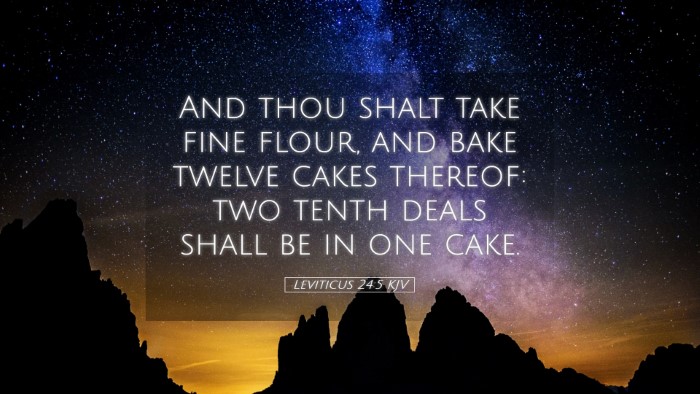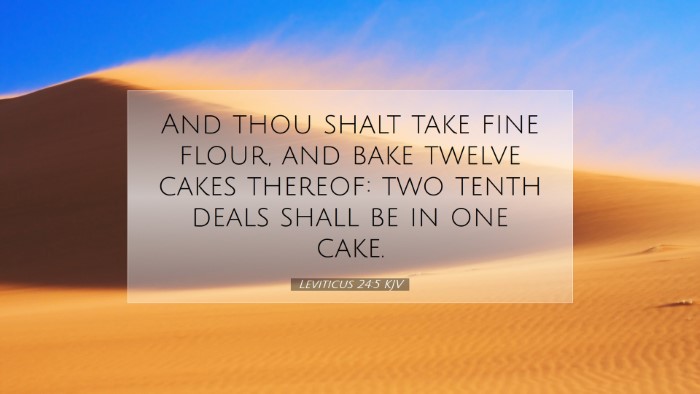Commentary on Leviticus 24:5
Leviticus 24:5 states, "And you shall take fine flour and bake twelve loaves from it; two-tenths of an ephah shall be in each loaf." This verse speaks about the preparation of the showbread, which was placed in the Tabernacle as an offering to God. Here, we will draw insights from Matthew Henry, Albert Barnes, and Adam Clarke to explore its theological significance.
Contextual Background
Understanding the context of Leviticus is crucial to grasping the full meaning of this verse. The book primarily deals with holiness, priestly duties, and proper worship, emphasizing God's instructions for the Israelite community.
Historical Insight
According to Matthew Henry, the instruction for the showbread reflects a significant aspect of the ceremonial law. The loaves of bread represented the twelve tribes of Israel, symbolizing their perpetual presence before God. This act of baking and placing the loaves was not merely ritualistic; it served a deep theological purpose in God's covenant relationship with His people.
Theological Significance
Albert Barnes elaborates that the act of preparing the showbread represents the sustenance and provision God offers His people. Just as bread is a staple for physical sustenance, so too is God's presence vital for spiritual nourishment.
Symbolism of the Bread
Each loaf being representative of the twelve tribes symbolizes that all Israel is to dwell in communion with God. Adam Clarke remarks that the number twelve is significant in the biblical narrative, symbolizing completeness and God's government over His people.
Ceremonial Observations
The nature of the bread, being made of fine flour, underscores the requirement for quality in offerings to God. Matthew Henry suggests that fine flour symbolizes purity, a reminder that offerings made to the Lord must come from dedicated hearts.
- Quality of Offerings: The use of fine flour highlights the importance of giving God the best.
- Divine Provision: The baking demonstrates an act of worship, reminding Israel to acknowledge the God who provides.
New Testament Fulfillment
The symbolism of the showbread points forward to Christ, who calls Himself the "Bread of Life" (John 6:35). Barnes emphasizes that just as the bread was presented before God in the Old Covenant, so Christ is presented as the ultimate provision for humanity in the New Covenant.
Communal Aspect of Worship
Adam Clarke posits that the communal aspect of the showbread emphasizes the unity of the tribes. The bread was to be eaten by the priests, representing the shared fellowship between God and His people through the priesthood.
Practical Applications
For pastors and theologians, Leviticus 24:5 offers several practical takeaways:
- Leading in Worship: Leaders are reminded to offer their best to God, reflecting purity and dedication in worship.
- Community Focus: There is an invitation to foster a spirit of unity within the church—each member is vital for the body of Christ.
- Pointing to Christ: The significance of Christ as the Bread of Life should be woven throughout teachings and sermons.
Conclusion
In summation, Leviticus 24:5 encapsulates rich theological themes throughout biblical history. The preparation of the showbread not only possesses ceremonial importance but serves as a profound symbol of God’s provision, the communal aspect of faith, and the foreshadowing of Christ. It is a reminder for believers of the necessity to present their best before God and acknowledge the sustenance He provides in all aspects of life.


